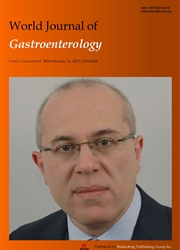

 中文摘要:
中文摘要:
Aptamers are molecular recognition elements with high specificity that are selected from deoxyribonucleic acid/ribonucleic acid (DNA/RNA) library. Compared with the traditional protein recognition elements,aptamers have excellent properties such as cost-effective,stable,easy for synthesis and modification. In recent years,electrochemistry plays an important role in biosensor field because of its high sensitivity,high stability, fast response and easy miniaturization. Through the combination of these two technologies and our rational design,we constructed a series of biosensors and biochips that are simple,fast,cheap and miniaturized. Firstly,we designed an adenosine triphosphate (ATP) electrochemical biosensor based on the strand displacement strategy. We can detect as low as 10 nmol/L of ATP both in pure solution and complicated cell lysates. Secondly,we creatively split the aptamers into two fragments and constructed the sandwich assay platform only based on single aptamer sequence. We successfully transferred this design on biochips with multiple micro electrodes (6×6) and accomplished multiplex detection. In the fields of biochips and biocomputers,we designed several DNA logic gates with electric (electrochemical) signal as output which paves a new way for the development of DNA computer.
 英文摘要:
英文摘要:
Aptamers are molecular recognition elements with high specificity that are selected from deoxyribonucleic acid/ribonucleic acid (DNA/RNA) library. Compared with the traditional protein recognition elements, aptamers have excellent properties such as cost-effective, stable, easy for synthesis and modification. In recent years, electrochemistry plays an important role in biosensor field because of its high sensitivity, high stability, fast response and easy miniaturization. Through the combination of these two technologies and our rational de- sign, we constructed a series of biosensors and biochips that are simple, fast, cheap and miniaturized. Firstly, we designed an adenosine triphosphate (ATP) electrochemical biosensor based on the strand displacement strategy. We can detect as low as 10 nmol/L of ATP both in pure solution and complicated cell lysates. Secondly, we creatively split the aptamers into two fragments and constructed the sandwich assay platform only based on single aptamer sequence. We successfully transferred this design on biochips with multiple micro electrodes (6×6) and accomplished multiplex detection. In the fields of biochips and biocomputers, we designed several DNA logic gates with electric (electrochemical) signal as output which paves a new way for the development of DNA computer.
 同期刊论文项目
同期刊论文项目
 同项目期刊论文
同项目期刊论文
 期刊信息
期刊信息
